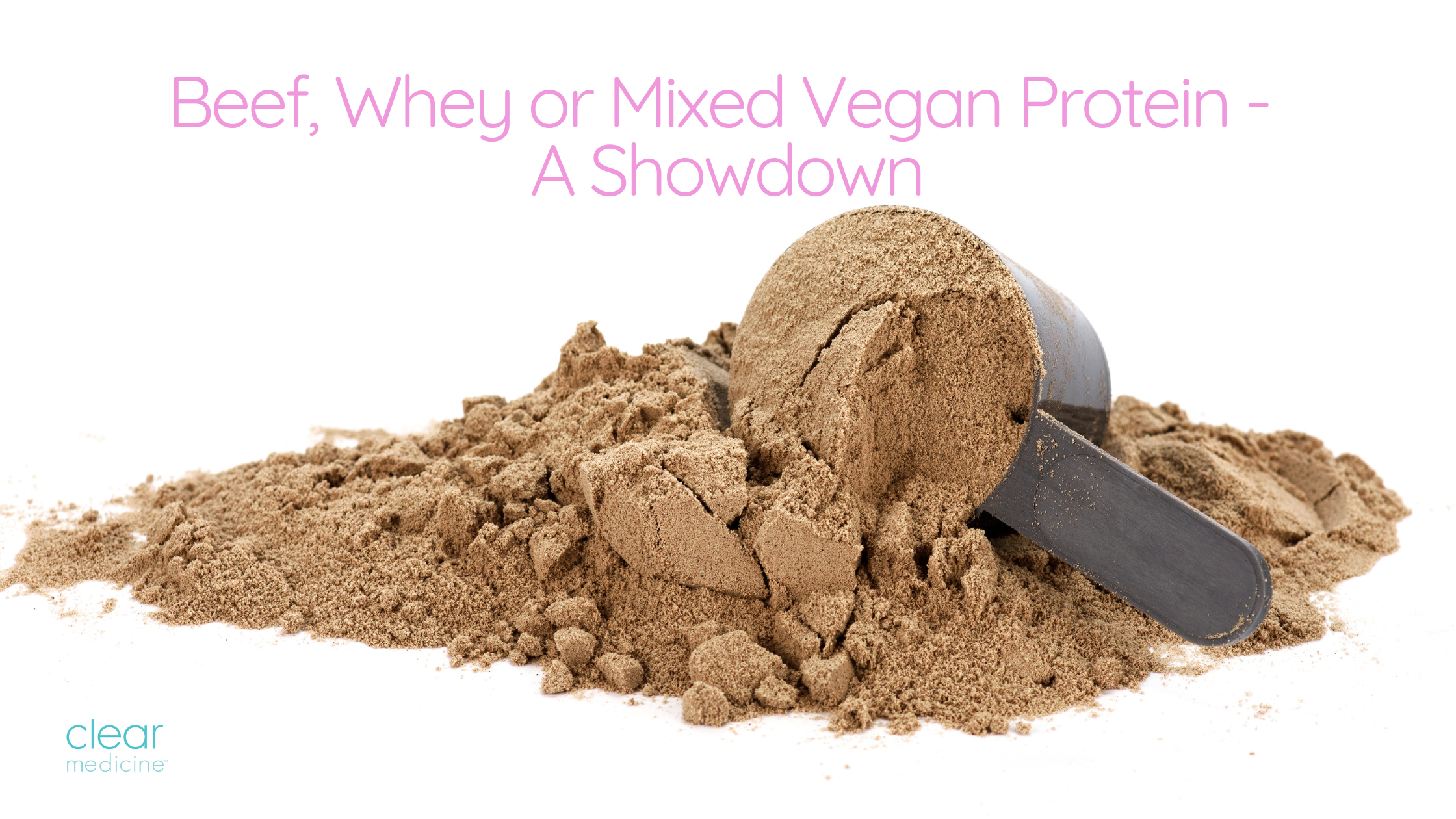Beef Protein vs Whey Isolate vs Mixed Vegan Protein (Pea + Rice): A Nutritional Showdown
Posted by Natasha Turner on 11th Jun 2025
I just recently added three new protein options to the Clear Medicine shopping experience. I chose ATP Labs as a new supplier of my protein powders due to these reasons:
Atp Labs tests every batch of raw materials to identify, potency, microbial contaminants, heavy metals solvent residues and allergens.. Manufactured in Canada
The whey protein is:
The beef protein is:
The vegan protein is:
In addition to having an understanding of the quality of the protein pooduct. The typeo of protein powder also has specific nutritional benefits. When it comes to fueling your body with high-quality protein, the options are vast — and a little overwhelming. But which is best for muscle building, digestion, and overall health?
Let’s break down the nutritional value and amino acid profileof these three protein sources to help you decide which one fits your goals.
1. Whey Protein Isolate: The Gold Standard
Overview:
Derived from milk during the cheese-making process, whey protein isolate (WPI) is processed to remove most fats and carbs, resulting in a protein powder that’s typically 90%+ protein by weight.
Nutritional Highlights (per 30g serving):
Amino Acid Profile:
Pros:
Cons:
2. Beef Protein: A Surprising Contender
Overview:
Beef protein powder is made from hydrolyzed beef, often stripped of fats and cholesterol. It's popular among those who avoid dairy but want an animal-based protein.
Nutritional Highlights (per 30g serving):
Amino Acid Profile:
Pros:
Cons:
3. Mixed Vegan Protein (Pea + Rice): A Plant-Based Power Combo
Overview:
Alone, most plant proteins are incomplete, but blending pea and rice protein creates a complete amino acid profile. Pea is high in lysine, while rice is rich in methionine.
Nutritional Highlights (per 30g serving):
Amino Acid Profile:
Pros:
Cons:
Final Comparison Table
|
Feature |
Whey Isolate |
Beef Protein |
Pea + Rice Protein |
|
Protein (per 30g) |
~27g |
~25g |
~20–25g |
|
Complete Protein |
✅ |
✅ |
✅ (when combined) |
|
Leucine (approx.) |
2.7g |
2.3g |
1.8–2.2g |
|
BCAAs (total) |
~6g |
~5g |
~4.5–5g |
|
Digestion Speed |
Fast |
Moderate |
Moderate |
|
Vegan Friendly |
❌ |
❌ |
✅ |
|
Lactose-Free |
✅ (mostly) |
✅ |
✅ |
Bottom Line: Which Should You Choose?
In the end, all three can support fitness goals when used appropriately. Choose based on your dietary needs, ethical stance, and digestive comfort — your body (and conscience) will thank you.

